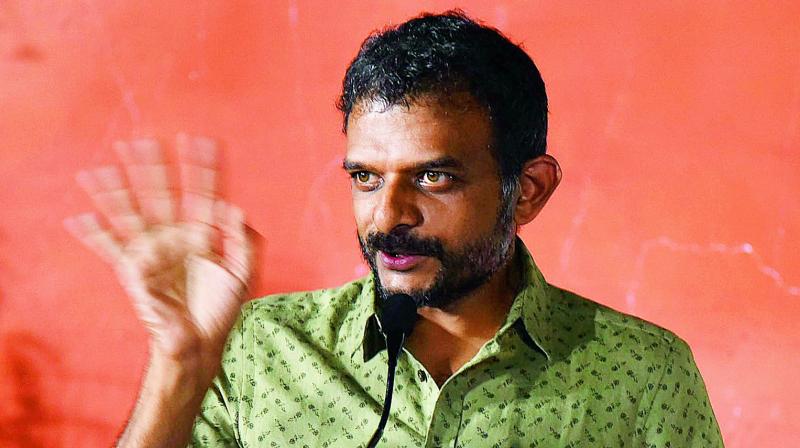Art, culture should help us de-baggage our identities, says TM Krishna

Hyderabad: M. S. Subbulakshmi’s music was truly mesmerising, but her life story was a tragedy, observed Ramon Magsaysay Award winner and celebrated Carnatic music vocalist T.M. Krishna.
Coming from a Devadasi background in Madurai, Subbulakshmi tried to distance herself from her roots and transform herself into the ideal Brahmin woman so that she could be accepted in society, he said. The transformation could be easily identified if one listens to her songs of the 1960s and ‘70s, and later, after she ran away from her home to start a new life in Chennai.
T. M. Krishna was speaking at Manthan on Culture and Community, at the inauguration of Manaku Teliyani MS, the translation into Telugu by reputed Telugu writer Volga of TJS George’s book on Subbulakshmi.
“One can hear M. S. Subbulakshmi’s old songs on Youtube. The music is free-spirited and electrifying and one feels like one is listening to a rock star. The music rendered by her after undergoing cultural and social transformation is equally fascinating to hear, but one notices the sorrow behind her voice,” he said.
To embrace Brahminism she distanced herself from her brother and family in Madurai and that is the sad part, Mr Krishna said.
He pointed out that art and culture should help us de-baggage ourselves and our identities to create interesting and equal communities. Culture and community are the two most discussed words, but great cultures are the ones that do not create a rift between insiders and outsiders.
Mr Krishna posed a question to the audience: would they have adored and liked Subbulakshmi’s songs if she had been dark-skinned and dressed differently? Upper caste communities owned her because she looked fair and dressed like them.
Telugu writer Volga said that she did not know much about Subbulakshmi or Carnatic music before translating the book. She found it strange that Subbulakshmi’s life was narrated in English by TJS George, and that it explained the role of religion, caste and language and the prejudices of a Brahmin-dominated male chauvinistic world and was not translated into many regional languages. Perhaps the community did not want Subbulakshmi’s true identity and background to be revealed to the next generation, she said.

